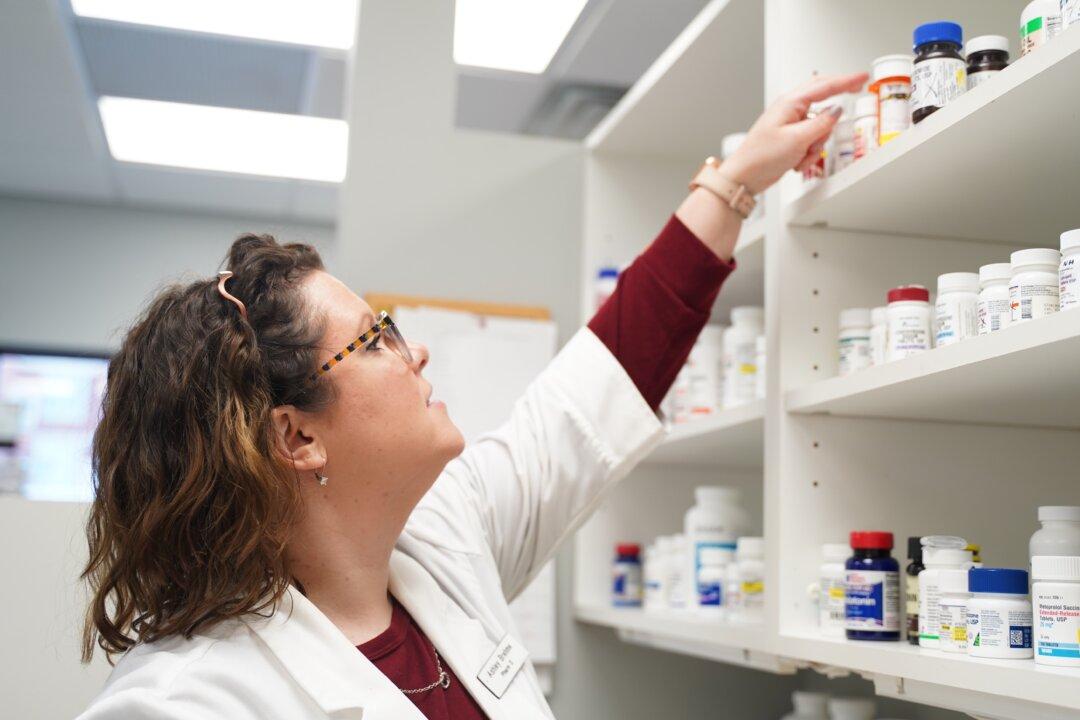MANCHESTER, Iowa—Since the pandemic hit in March 2020, the workload has greatly increased for the pharmacists and technicians at Brehme Drug in Manchester, a rural town of some 5,000 people in eastern Iowa.
“They call you up and say, ‘Help! Explain this to me,’” pharmacist Cathy Lilienthal told The Epoch Times. She has worked at the store for 35 years and knows many patients by their first names.





